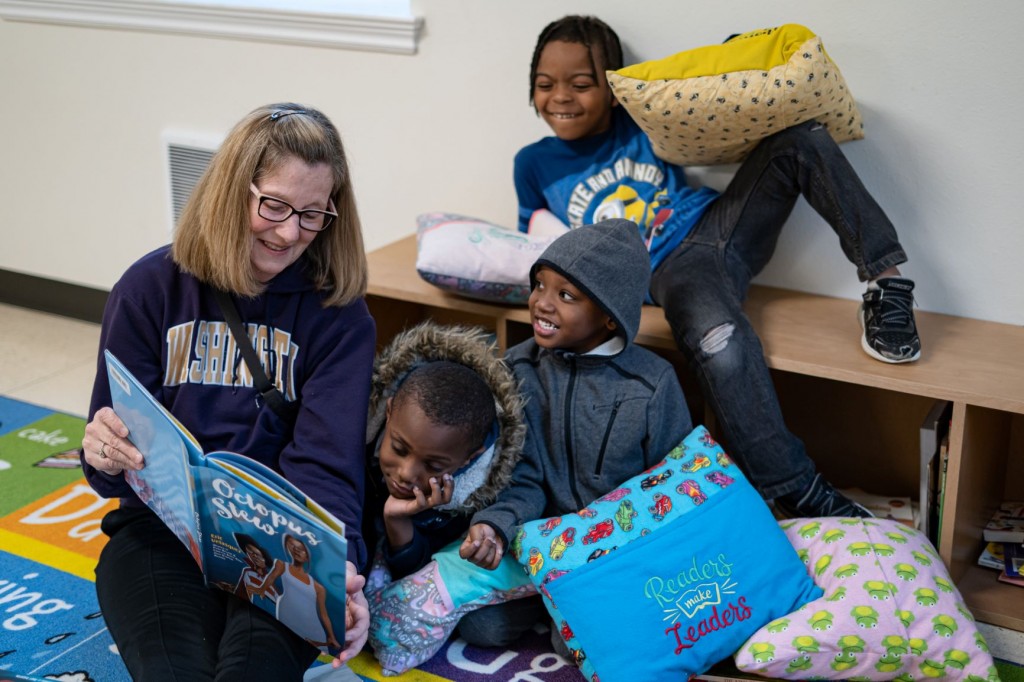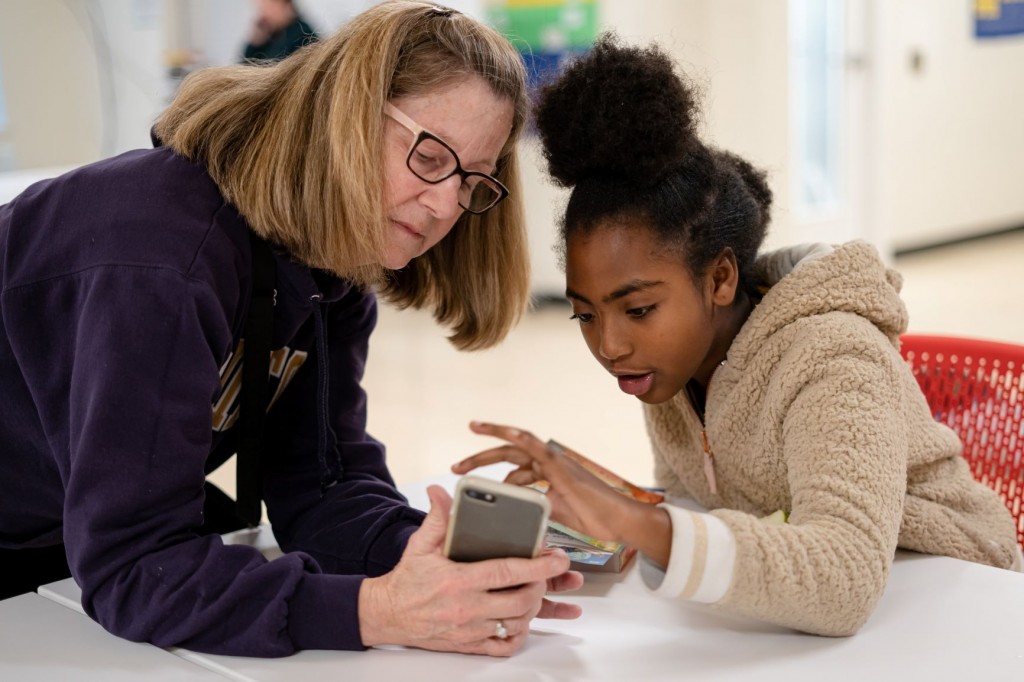Seattle Public Schools’ (SPS) partnership with housing providers and community-based organizations is rooted in the belief that children learn best when they experience a cohesive, stable, and safe learning environment filled with caring adults. When school districts, affordable housing providers, and community partners come together, we can build positive partnerships with families, provide wrap around supports for children, and improve our education and housing services for current and future generations. SPS partners with about a dozen affordable housing partners to support access to learning opportunities, build strong school and family relationships, and address housing instability.
To highlight the value of housing partnerships, the importance of having leaders championing cross sector collaboration, and to celebrate a key partner— we interviewed recently retired President of Mercy Housing NW, Bill Rumpf. Below, Bill shares his learnings from his ten years with Mercy Housing and more recently the collaboration with SPS at Mercy Housing Magnuson Place.
How has Mercy Housing’s approach support the educational success of young people who are in your programs?
“Our initial and deep partnerships with schools started in a Bellingham community serving farmworker families ten years ago. At that time, the children and their parents did not feel welcome in the schools. There was limited targeted support for Spanish-speaking children, and meeting academic milestones were a challenge. We were committed to finding ways to improve opportunities for our young residents. Over time, our staff fostered a collaboration between parents and schools and developed a strong afterschool program together with families, Bellingham School District, and Western Washington University. Our partnerships and strong working relationships are making a difference. For the past six years, we’ve reached 100% high school graduation almost every year and almost all graduates have gone to college or a chosen vocational training program.”

“Based on our experience in Bellingham, we were committed to building relationships with local schools and community providers for the opening of 148 new affordable housing at Mercy Magnuson Place in Seattle. Over the last 18 months, a group of people in the Magnuson Park area across education, housing, healthcare and youth enrichment met monthly or more to build relationships and set goals to ensure we would be ready for new and existing students when the next school year started. We have hosted ‘meet-and-greets’ at our communities where Principals and schools staff could build relationships with families traditionally underrepresented. With such a large portion of our residents being multi-lingual and new to the American school system, we supported them with translation and navigation of educational supports. We made computers available and guided families through online school enrollment, especially for incoming Kindergarteners. The Magnuson Youth Collaborative is now able to share important information and better respond to families’ needs during this time of COVID-19 because of our existing relationship.”
As a leader of a nonprofit housing provider, how do you personally value supporting the education and development of children and young people?
“Schools are so formative in shaping the goals and feelings of self-worth of young people. As a housing person, I’ve tried to learn where our organization has most influence to support children—providing a safe, stable living environment, and creating a feeling of community that supports education. I’ve also found that child and youth programming is the strongest way to build a trusting relationship with adult residents.”
“Although, Mercy Housing is not able nor does it seek to be a large social service delivery entity, we do believe in our role in serving the holistic basic needs of our families, which includes education. We build flexible community spaces and use our Resident Services Coordinator positions to cultivate effective partnerships with specialized service agencies, health providers, culturally-specific organizations and public agencies. Child care, health and education partners are part of the whole picture for what every family needs, but aren’t always available to low-income families.”
Of all the areas to support student learning, housing providers have the most influence in providing a safe, stable living environment, and creating a feeling of community that supports education.
Bill Rumpf, Former President of Mercy Housing NW
How do you use your role as the President of Mercy Housing NW to create programs and supports for youth programming?
“I spent about a third of my time on fundraising, and we had a fundraising team that has (knock on wood) enabled Mercy Housing to have a higher level of resident services staffing than most housing organizations. There is not a single funding source that supports this type of work. Mercy Housing seeks to have a full-time Resident Services Coordinator at each of its family housing sites, who spends about 50% of their time on programming for 0-18 year old residents. I have watched our approach evolve from a vast number of localized, ‘good intention’ activities, to try to be more systematic and understand best practices and to partner more thoughtfully with schools.”
What are the top three things you would suggest to other affordable housing providers who would like to support the educational success of the children in their housing programs?
“The first step would be to understand their families. Look at the demographics of children, whether they are zero to five years old, elementary-aged students, or teens. The age distribution helps inform what types of educational partnerships would be most fruitful. We were surprised to see at one of our more recent apartment buildings, that there was an overwhelming number of young children under five, so we are concentrating our efforts on childcare and early learning referrals. Early planning with the school district helped before the building opened. Our building opening and the recent trends of a high number of children under five in new multi-family developments was one of the factors in Seattle Public Schools supporting the opening of a new preschool at the local elementary school. This is a big win for our families who will have another option for preschool and hopefully reduce the number of trips they make during before and after school pick-up.”

“The second tip is to stay engaged in local and regional networks like School’s Out Washington. This provides opportunities to learn from peers and gather advice from experts. Building your relationships with the school district, local schools, and other neighborhood partners is so important. We were fortunate that Seattle Public Schools in partnership with Seattle Housing Authority created the first Housing and Education Manager role at the district with the help of the Bill and Melinda Gates Foundation. This position helped us, as a housing provider, understand the school context, form relationships, and connect us to educational resources and important information to support families. Each Seattle and King County neighborhood is different, so be aware of your context and build neighborhood coalitions to build on the assets that already exists and fill in the gaps specific to that neighborhood. Every child should have quality early learning programs, access to food and healthcare, and opportunities for exploring their interest and passions. Together, we can create healthy vibrant neighborhoods.”
“The third suggestion would be to explore the feasibility of providing affordable space to entities that provide relevant services for your residents. In our last few buildings, we were fortunate to partner with Neighborcare Health, Denise Louie Education Center, Child Care Resources, Mary’s Place, Refugee Women’s Alliance and East African Community Services. Explore opportunities to offer your community rooms to Community-Based Organizations with the expertise to provide regular youth programming.”
Many different types of organizations and the families they serve are living through uncertain and changing times due to COVID-19, making learning challenging. What are your hopes for how the housing and education fields can partner to ensure that our region’s young people can still fulfill their education and life goals?
“This is a difficult period, with more barriers to school access, socialization and peer development opportunities, and economic instability for many parents and other caregivers. Mercy Housing Northwest has been very engaged in crisis response activities such as food distribution, some mental wellness support, and distributing information and meals from nearby schools. One need that is clear is that in this age, children and adults need access to technology and broadband to function in today’s society. Our computer labs are no longer as effective due to the need for social distancing, so we’ve made a big push to secure internet access and devices. I hope schools and housing partners stay connected so we can maintain interest and enjoyment in learning for our young people.”
Bill Rumpf will be surely missed, but we are excited to continue our partnership with Mercy Housing through the leadership of Joe Thompson, the new MHNW President who brings experience with innovative housing-education partnerships and Katie Parker and Lindsey Karas who oversee the education efforts. Thank you Bill for your years of dedication and service!
Over the four years of building strategic housing partnerships at Seattle Public Schools, I have learned that when housing providers see their role as neighbors and stewards of the community, we can support neighborhoods where families have their basic needs met and children have choices and opportunities to be their full selves, pursue their interests, and achieve their goals. While the role of convening housing providers may be unique within Seattle Public Schools, I do believe these intentional partnerships can happen in any community and are a necessary best practice so that children can go seamlessly about their day at school, home, or in community feeling loved and supported. If you are interested in learning more about our housing and education partnerships, please visit www.seattleschools.org/housingpartnerships and www.mercyhousing.org/northwest.
